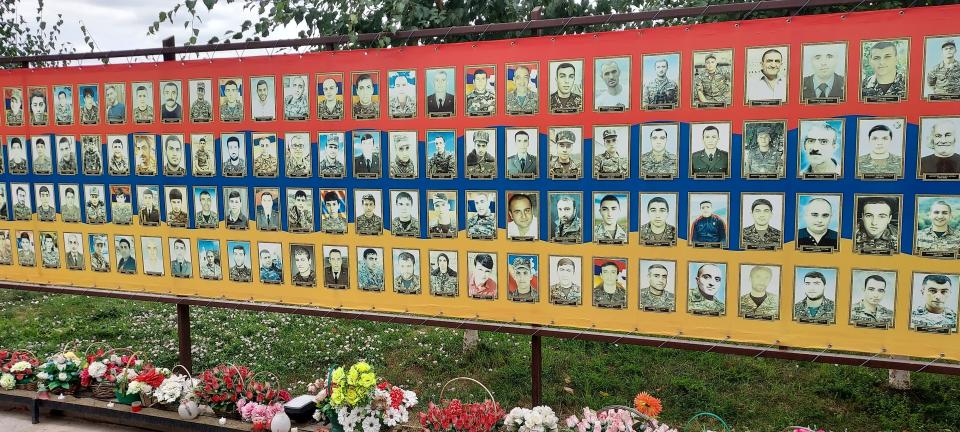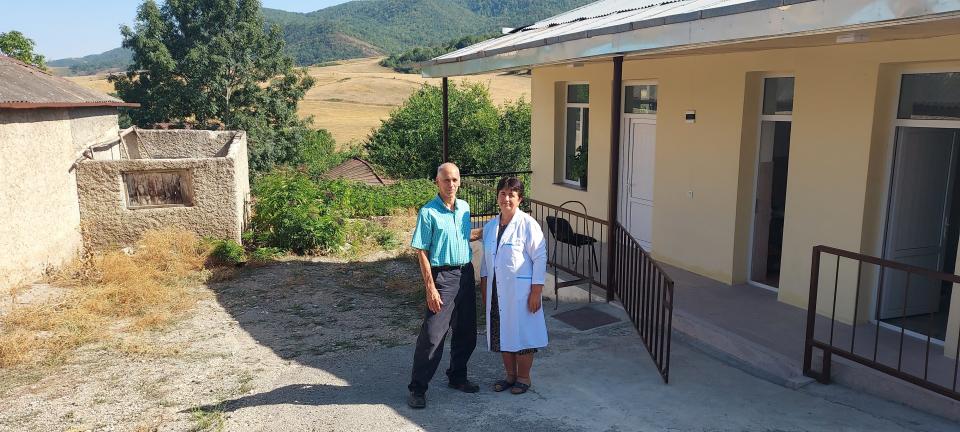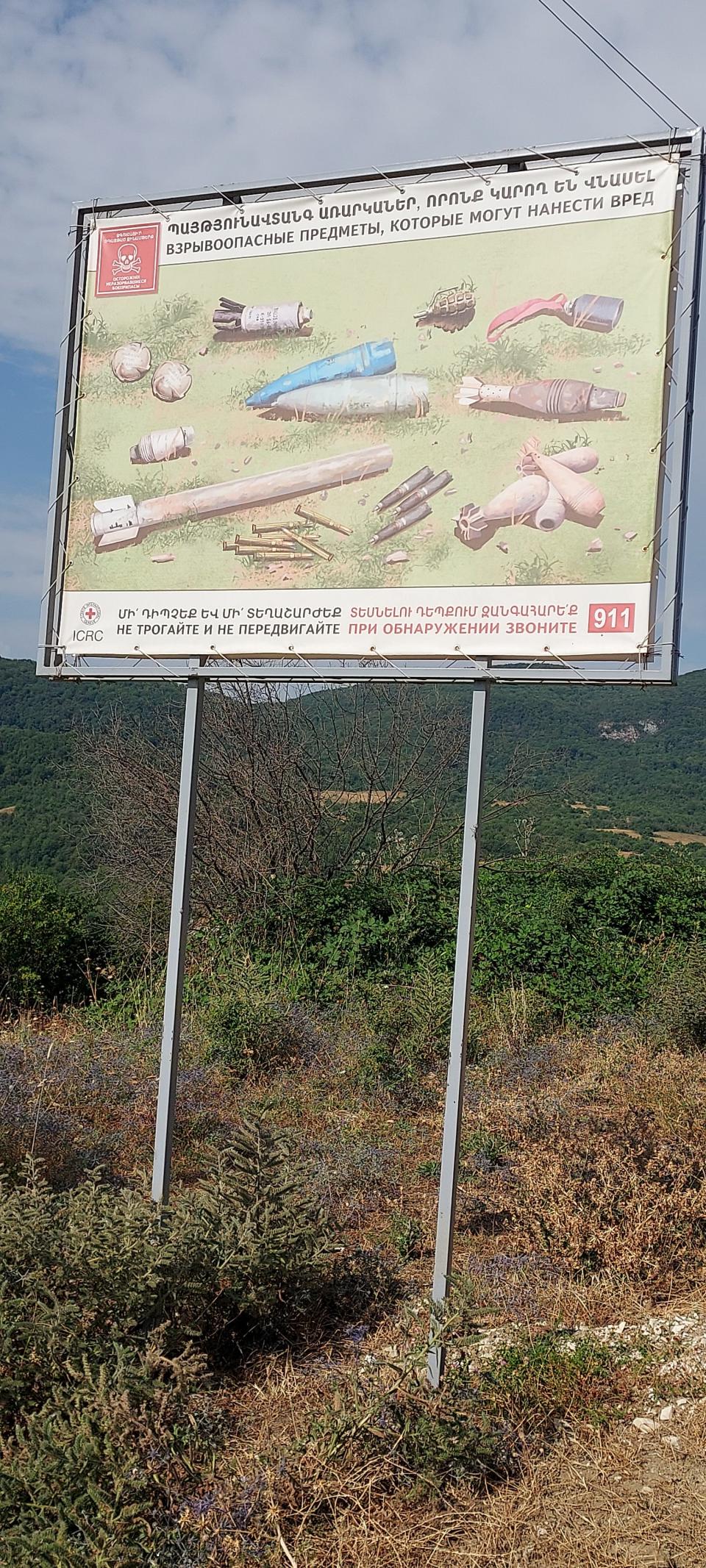Wisconsin doctor: I witnessed a humanitarian crisis in place you probably never heard of
(Editor’s note: Despite what Secretary of State Antony Blinken called “tangible progress" in U.S. brokered peace talks earlier this month, the hostilities between Armenia and Azerbaijan continue with shelling resuming on May 11 that killed a soldier and wounded several others.)
Imagine spending more than three months of this winter with empty grocery store shelves, lack of medicines at the local pharmacy, and a shortage of every other daily basic good needed. Imagine living with no heat for much of the day and night in frigid temperatures, no fuel in the car to travel to a doctor's appointment or to a place of employment, no internet to perform work and school tasks, or to communicate with loved ones. Since December, this has been the reality for the 120,000 people living within the borders of the beautiful South Caucasus Mountain territory of Nagorno Karabagh, a historically Armenian populated enclave lying within the borders of present day Azerbaijan, adjacent to Armenia.
I had the good fortune to live and work alongside the people of Nagorno Karabagh for several months late last year while engaged in a health care project. They are a hardworking, generous, church going people, many living a traditional mountain village life on a land they have been tied to for centuries. They are a people who have endured two wars since the breakup of the Soviet Union, the last in 2020, when the country of Azerbaijan supported by Turkey and other regional powers, unleashed a 44 day attack on the area that took the lives of over 5,000.

Each day during our village clinic sessions, stories were told of loved ones lost or badly wounded, displacement from homes or towns, loss of livelihood, and much more. Because Azerbaijan now occupies all the land surrounding Nagorno Karabagh, many of the clinics were conducted within view of Azerbaijan military posts, a source of constant anxiety for the population given the periodic attacks on the villages. Rather than being angry, bitter or desiring revenge, the refrain I heard repeatedly from the people was, "We simply want to live in peace."
Instead, in mid-December, Azerbaijan began a complete blockade of the only road connecting Nagorno Karabagh to Armenia and the outside world, placing a stranglehold on an entire population in attempt to remove them from their ancestral homeland. During this time, Azerbaijan has also repeatedly disrupted the gas and electricity supply to the area, as well as internet service. As a result, hospitals and clinics cannot supply needed services. Schools have closed. Food is being rationed. Businesses are shuttered. Organizations such as Genocide Watch and the Lemkin Institute have issued repeated warnings of genocide. Our own State Department, along with the European Union, United Nations, World Council of Churches, Vatican, Human Rights Watch and many others, have called for an end to the blockade, yet the humanitarian crisis continues.

While the horrific events in Ukraine are rightly covered vigorously by the press and are a regular focus for our politicians, the above story, also taking place in the former Soviet Union, has largely remained out of the media. It also has not triggered actions by our elected officials similar to those taken against Vladimir Putin and Russia for its gross human rights violations.
To make matters worse, the hard-earned tax dollars of every Wisconsin and US worker is flowing into the hands of the Azerbaijan leadership responsible for this attempt at ethnic cleansing. While our country defends democracy and human rights in Ukraine against a brutal dictator, we are in effect doing the opposite in Nagorno Karabagh by using our dollars to support and reward a dictator who inflicts suffering on a people governed by democratic principles.
Our politicians, the media, and the global community can and must do better. We as citizens can do our part by contacting local and national media to request they report on this story, in hopes that shining a light on the blockade will assist in ending it. Likewise, we must relentlessly contact our politicians-including the White House, State Department, Sens. Tammy Baldwin and Ron Johnson, and members of our Congressional delegation, until they speak up forcefully against Azerbaijan for its conduct, and back those words with all necessary actions to end the blockade and secure a lasting future for these people in their homeland. Our demands should include an immediate end to the handing over of dollars we work so hard for, to a government intent on committing genocide.

Through these actions, we can do our part to end the blockade, bring peace to the people of Nagorno Karabagh, and avoid adding another tragic chapter to human history.
Dr. Nick Akgulian is from Racine and practiced in southeastern Wisconsin. He currently works as a volunteer physician in Belize at the Hillside Clinic , a facility that the Medical College of Wisconsin helped establish in 2000. His work in Nagorno Karabagh was organized and funded by two Armenian organizations with the aim of improving primary health care delivery in the region. It was intended to be an ongoing project but the conflict has prevented it from resuming. He lived and worked in Armenia 2001-02 on a World Bank and USAID funded health care reform project.
This article originally appeared on Milwaukee Journal Sentinel: People of Nagorno Karabagh enduring blockade in former Soviet Republic.

